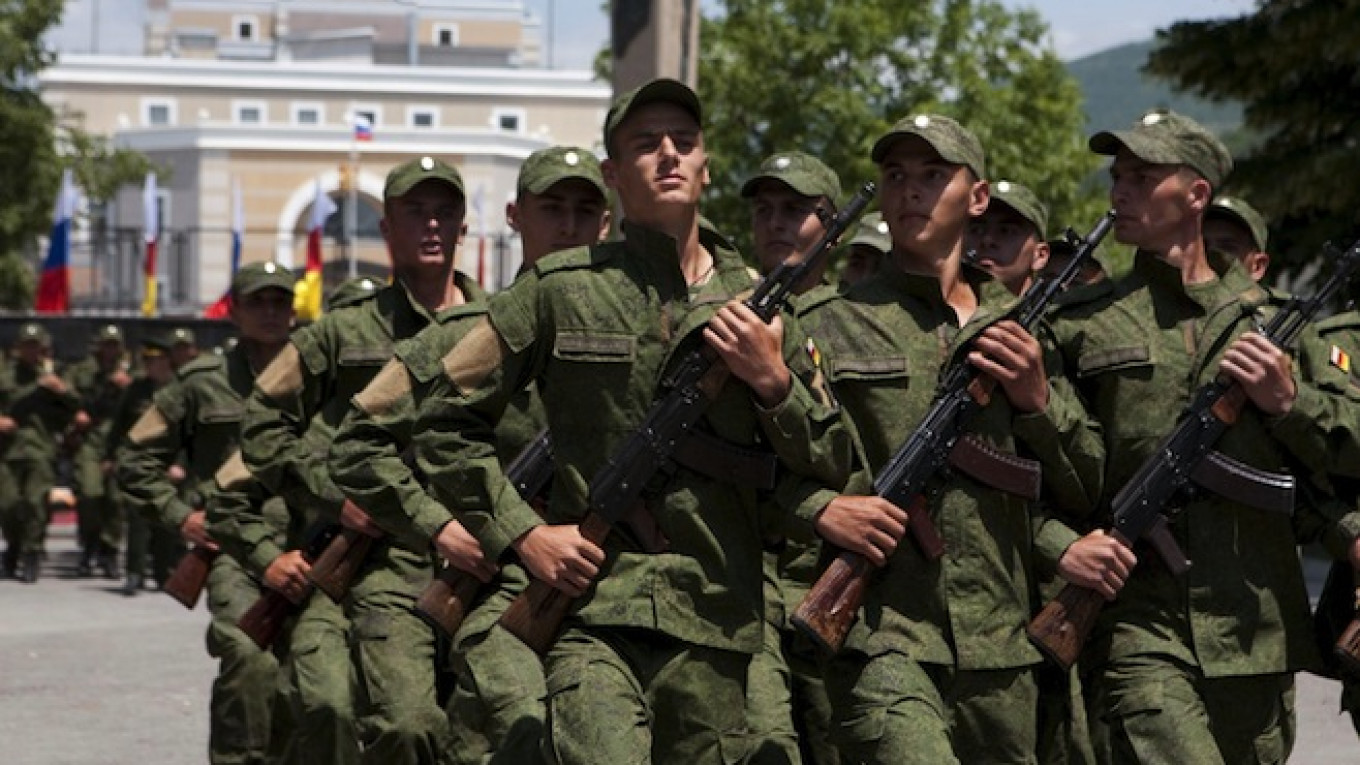TBILISI — Georgia accused Russia on Monday of violating its sovereignty by placing border markers on the edge of the South Ossetia region, leaving part of an international oil pipeline in territory under Russian control.
Tbilisi has not controlled South Ossetia or its fellow breakaway region of Abkhazia since fighting a brief war with Moscow in 2008. Both host Russian military bases, but most countries and the United Nations regard them as part of Georgia.
Russian troops have been installing barbed wire and fences around South Ossetia since the war but residents say the soldiers have now erected border signs up to about 1.5 kilometers beyond the administrative border.
Condemning the action, Georgia's Foreign Ministry said part of the BP-operated Baku-Supsa oil pipeline was now in territory it regards as occupied by Russia.
"The Georgian Foreign Ministry expresses its extreme concern over the illegal placement of banners by the Russian occupying forces marking the so-called 'border'," it said in a statement.
"It is noteworthy that … with this illegal action a certain portion of the [Baku-Supsa] pipeline next to the village of Orchosani fell within the occupied territory."
Russia did not immediately comment on the ministry's remarks.
The 830-kilometer Baku-Supsa pipeline runs from Azerbaijan to the Georgian Black Sea terminal of Supsa and has the capacity to transport up to 100,000 barrels of oil per day.
"As the operator of the Baku-Supsa oil pipeline, BP has been delivering Azerbaijan's oil in a reliable, efficient and secure way to the world market for over 15 years, and will continue to do so in the future," Azeri news agency ANS quoted Tamam Bayatly, BP-Azerbaijan spokeswoman, as saying.
Zurab Abashidze, a special envoy for relations with Russia, called it a "deliberate provocation, a very dangerous provocation" in a region where "security and peace hang by a thread."
Georgia is strategically important for Europe because of the pipelines that run through the country of 3.7 million, bringing it Caspian gas and oil.
The former Soviet republic is seeking membership of the NATO military alliance and the European Union. It has no diplomatic relations with Russia but says a foreign policy goal is not to antagonize Moscow.
A Message from The Moscow Times:
Dear readers,
We are facing unprecedented challenges. Russia's Prosecutor General's Office has designated The Moscow Times as an "undesirable" organization, criminalizing our work and putting our staff at risk of prosecution. This follows our earlier unjust labeling as a "foreign agent."
These actions are direct attempts to silence independent journalism in Russia. The authorities claim our work "discredits the decisions of the Russian leadership." We see things differently: we strive to provide accurate, unbiased reporting on Russia.
We, the journalists of The Moscow Times, refuse to be silenced. But to continue our work, we need your help.
Your support, no matter how small, makes a world of difference. If you can, please support us monthly starting from just $2. It's quick to set up, and every contribution makes a significant impact.
By supporting The Moscow Times, you're defending open, independent journalism in the face of repression. Thank you for standing with us.
Remind me later.


